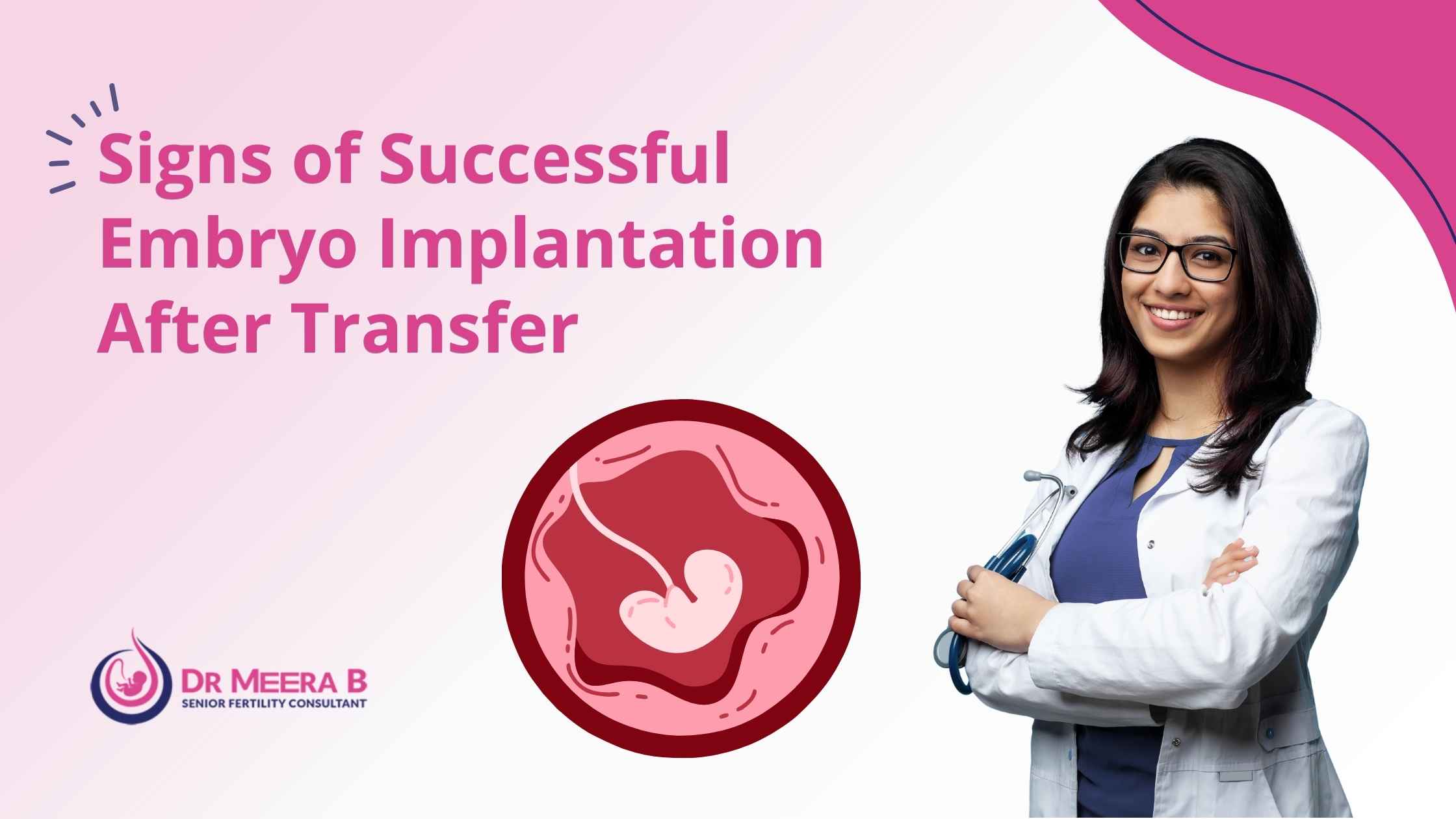What is Embryo Implantation and Why Is It Important?
Embryo implantation occurs when the embryo, once transferred into the uterus, attaches itself to the uterine wall. This process marks the beginning of pregnancy, where the embryo starts to develop. A successful implantation means that your pregnancy is progressing well, and the embryo has established a secure connection to the uterus. Without implantation, the embryo would be unable to grow, making this one of the most critical stages in IVF treatment.
Signs of Successful Embryo Implantation After Transfer
1. Spotting or Light Bleeding
Light bleeding or spotting, known as implantation bleeding, is one of the first signs that implantation may have occurred. While it is a common symptom, not everyone experiences it. Implantation bleeding usually happens 6-12 days after embryo transfer, and it tends to be much lighter than a regular period. If you notice light bleeding, it’s a strong indicator that the embryo has attached to your uterine lining. It’s essential to differentiate this from a regular period, which can be heavier and longer-lasting.
2. Cramping
Mild cramping can occur as the embryo embeds itself into the uterus. The cramps can feel like menstrual cramps, but they typically are not as severe. This cramping is often a sign of successful embryo implantation, though it may also indicate other early pregnancy signs. If the cramping is persistent or severe, it is essential to contact your healthcare provider.
3. Increased Cervical Mucus
After implantation, many women notice an increase in cervical mucus. This is due to the hormonal changes that occur as the body prepares for pregnancy. The discharge tends to be thicker and creamier, signaling that your body is starting to produce more progesterone to support the pregnancy. Increased cervical mucus can be one of the subtle yet unmistakable IVF symptoms following embryo implantation.
Early Pregnancy Signs and How They Relate to Embryo Implantation
While some early pregnancy signs overlap with the symptoms of successful embryo implantation, others become more pronounced as the pregnancy progresses. One of the earliest indicators of pregnancy is fatigue. Hormonal shifts, particularly increased levels of progesterone, can lead to a feeling of exhaustion during early pregnancy. Other early signs include changes in appetite, food aversions, and even mild nausea, all of which could indicate that implantation has successfully occurred.
1. Fatigue
The rapid hormonal changes in your body following embryo implantation may lead to fatigue. It is normal to feel more tired than usual, especially in the first few days after implantation. Your body is working hard to nourish the embryo, which can leave you feeling drained.
2. Tender Breasts
Hormonal changes are the primary cause of breast tenderness after embryo implantation. Your breasts may feel swollen or sore, especially around the nipple area. This discomfort is a common early pregnancy sign, and it often intensifies as the pregnancy progresses.
Post-transfer Indicators and Their Meaning
Following the embryo transfer, there are several key post-transfer indicators that can provide further insight into whether implantation has been successful. These include hormonal changes, which can be tracked through blood tests, as well as physical symptoms that may appear within days or weeks after the transfer.
1. Positive Blood Test for hCG
A blood test measuring the levels of human chorionic gonadotropin (hCG) is one of the most reliable ways to confirm pregnancy after embryo implantation. An increase in hCG levels indicates that the embryo is producing the hormone, which is essential for maintaining pregnancy. This test is typically performed 10-14 days after the embryo transfer and is one of the definitive post-transfer indicators.
2. Elevated Progesterone Levels
Elevated progesterone levels are another sign that the body is preparing for pregnancy. This hormone is crucial for maintaining the uterine lining and supporting embryo development. If your progesterone levels remain high after embryo transfer, it suggests that implantation has successfully occurred and that your body is beginning to sustain the pregnancy.
How Dr. Meera B Can Help You
Dr. Meera B, with over 30 years of experience and advanced training in Reproductive Medicine and IVF, offers expert consultation for couples struggling with fertility. At Dr. Meera B’s place of practice, she provides thorough assessments and personalized fertility treatments, guiding you through every stage of IVF, from embryo transfer to successful implantation.
To take the first step towards fulfilling your dreams of parenthood, visit Dr. Meera B’s contact page or reach out via +91 9447145101 to schedule an appointment. You can also contact her team through WhatsApp for convenience.


Comments are closed